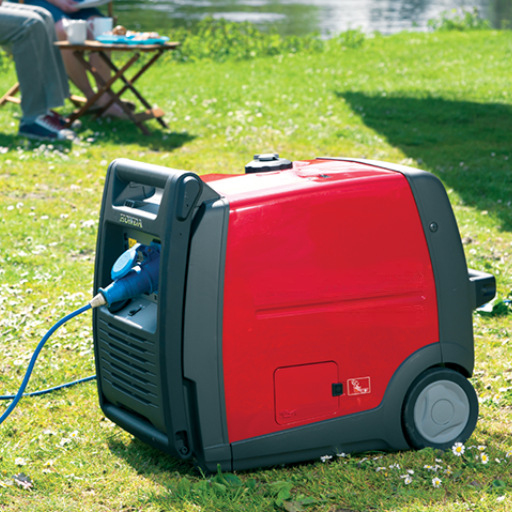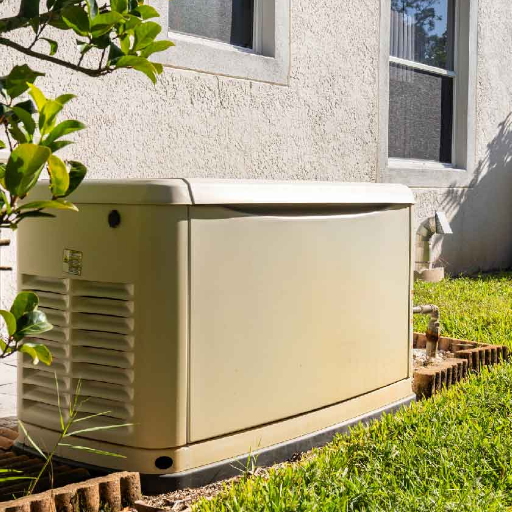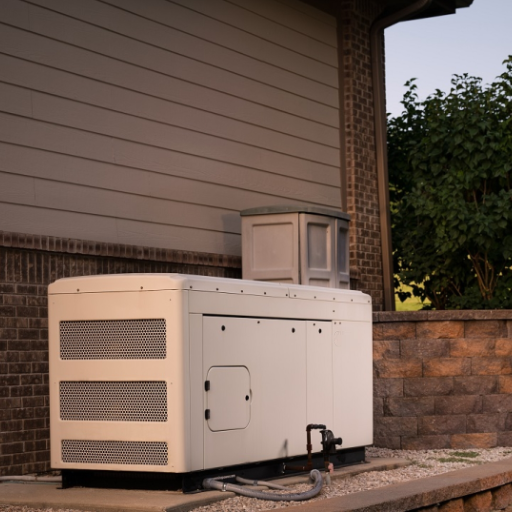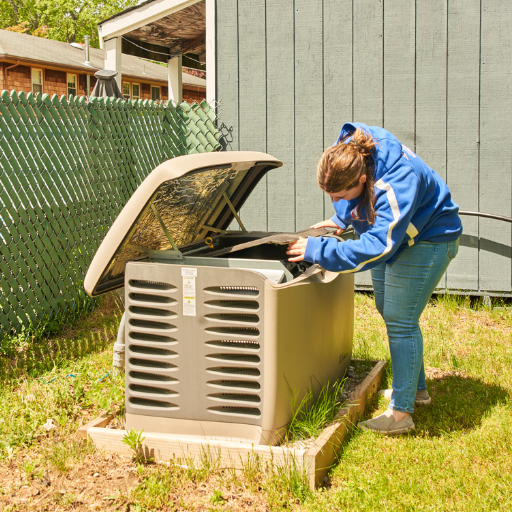Ensuring that your generator operates efficiently and reliably requires regular maintenance, with special attention to the air filter. The air filter plays a vital role in protecting the engine from dust and debris, ensuring clean air intake and optimal combustion. Over time, air filters can become clogged, leading to reduced performance and potential engine damage. This article provides a comprehensive guide on how to clean and maintain your generator’s air filter, offering step-by-step instructions and practical tips to help you keep your generator running smoothly. Whether you are a seasoned technician or a first-time generator owner, understanding the importance of air filter maintenance is crucial for extending the life of your equipment and ensuring its reliability during power outages or demanding tasks.
Why is the generator air filter important?
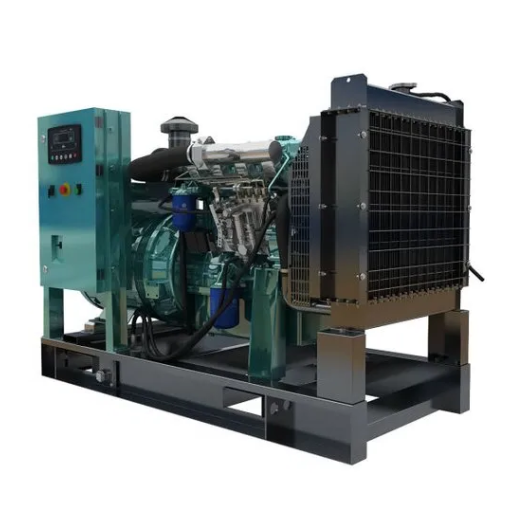
What role does the air filter play in a generator?
To begin with, the first purpose of an air filter is to be a first line of defense against harmful irritants such as dirt, dust, and debris. These particles, if let into the engine, can contribute to substantial damage to the engine and reduce its life span. This is even more important as diesel engines require more air than gasoline ones; hence, a high-performance, clean air filter is critical. The air filter enables only pure air to mix with the fuel by filtering these impurities out, allowing the engine to function properly.
In addition, clean air filters are also vital in enhancing fuel economy. The air-to-fuel ratio is one of the most important factors regarding how efficient combustion is. If the proportion is out of whack due to a dirty or clogging filter, this leads to the overuse of fuel and imbalance in combustion. Routine air filter cleaning is also necessary to ensure that the engine gets the optimal amount of air which is key to ideal fuel economy.
Lastly, in regard to engine performance, a clean air filter provides a lot for the power performance of the engine. Clogged filters mean restricted air intake which leads to a drop in horsepower, poor throttle response, and sluggish acceleration. This allows the engine to maintain good air intake and hence enables the engine to produce the power required for effective and smooth running of the engine.
The air filter is best replaced every 12,000 to 15,000 miles and it is important to note that this value may fluctuate due to driving conditions. For example, if the car is used in dusty places often, the air filter may have to be changed more frequently. Sometimes it may also be easy to recognize when a replacement is needed. It is easy to notice when a filter becomes dirty, and sometimes a clogged filter may even cause a check engine light to come on.
To summarize, cleaning the air filter is not only important for engine health, but for proper car function as well. With regular servicing of the air filter, fuel economy, toxic emissions, and diesel engine life can all positively be impacted. Such a simple activity needs to be valued for its potential return on investment as well as the higher driving pleasure it brings.
How does a dirty air filter affect generator efficiency?
It is necessary to know or understand how dirty generator air filters can be cleaned, removal of the air filter and the generator owner’s manual are essential for the longevity of your equipment and to ensure it performs efficiently. This is primary to someone as dedicated as myself to ensuring the smooth functioning of my generator, now I understand the deliberate step of keeping the air filter clean. This is a great concern so let me explain how one goes about it.
How does a dirty air filter fit into the picture of the generator working systems, first let us see this. An air filter for a generator serves the purpose of preventing dust, dirt, and contaminants from entering the engine. When the air filter is dirty and clogged with debris, it can lead to a restriction to the airflow available to the engine The increased airflow demand can lead to an increased workload on the engine, decreased fuel efficiency, and overheating when it is taking in the requisite air for combustion. When this happens, we’ll be drawn to large operational costs along with increased fuel expenses.
Additionally, a clogged air filter lets excessive dirt to inhale into the engine which will also exacerbate the issues of harmful wear to the internal engine components. In a long-term view, this means more downtime for repairs and replacements and a low life for your generator. That is why it is important to maintain the air filter of your generator regularly as it is recommended.
For you to be able to take care of your generator air filter, you need to have it checked regularly. Depending on the operating environmental situation, it may be cleaned or replaced after every 100 to even 200 operating hours. More frequent checks are advisable in dusty and harsh environmental situations. Here’s how you clean the filter: Now, turn off the generator. There’s no personal safety without this. Make sure that, the generator is turned off and has cooled down before you begin.
- Remove the Air Filter: You may take the air filter out of the housing but do so with care. Specific instructions should be consulted from the manufacturer’s manual for the specific model on how this can be done.
- Filter Checking: Standing with the filter in front of a light, bring the object into contact with the light source. Good news if you can see through the filter, bad, if there is no light, or the filter is dirty. If it’s the second situation, it has a chance to be cleaned, otherwise it should get replaced.
- Filter Cleaning: Clean the inner surface by compressed air when working with reusable filters, the dirt is blown out from the inside out. Clean filters that are non-reusable should be discarded and replaced.
- Filter Reinstallation: Once clean or replaced, make sure the filter is refitted properly as it should not be loose so that unfiltered air enters the engine.
Maintaining and cleaning the generator air filter regularly will help improve the efficiency and dependability of the generator. Such a routine maintenance task reduces the chances of dirty air flow, thus improving combustion efficiency and the overall operation of the standby generator. In the long term, this helps to avoid excessive fuel consumption and minimizes the chances of unexpected repairs as well as increases the working hours of the standby generator.
It is important to stress that neglecting the proper maintenance of the air filter of a generator set will eventually lead to decreased performance of the unit. In the case of the generator engine failure with the air filter clogged due to dirt buildup, it will be much more expensive to conduct repairs than to replace the air filter. An air filter cleaning routine should always be in place when running these generators.
What are the signs that your generator’s air filter needs attention?
Owning a generator has taught me that a crucial aspect of maintaining the machinery in an optimal working condition and in a very efficient manner is periodic maintenance of the generator air filter in particular. The air filter is an air purifier for the engine. It is designed to prevent the entry of any dirty air into the engine. Most importantly, when does one know that the air filter in a generator needs replacement?
To begin with, it is worth understanding what can be termed as the indicators or factors that may necessitate the clean-up of the air filter. It is quite self-evident that an air filter blocks air to the engine – one of the clear signs that operations have to be done is when there is a decrease in the performance of the generator. For instance, when a gas generator fails to deliver power as expected, it is most probably due to a problem with the air filter. Dirty air filters result in a build-up of pressure and unresponsiveness because dirty filters prevent air from entering the appliance.
Other symptoms may include the presence of black smoke from the exhaust, which can also contribute to incorrect air-fuel ratio due to the air filter not being able to clean the air, resulting in poor combustion. Also, any roughness in the engine’s operation or unnecessary sounds can be attributed to poorly designed airflow regulation which can be improper air filters as well.
To keep the generator air filter in working order, bear in mind to periodically check the generator’s manual for cleaning instructions, since the filters differ from one model to another. In most cases, you should take out the filter and scrape it to remove any loose dust and dirt that has collected over time. In case of intensive cleaning, one may make use of compressed air to eliminate dust particles but should maintain a safe distance to not damage the filter material with the air hose.
In the case of cartridge filters that can be washed, they can be immersed in mild detergents, washed thoroughly, and dried completely before putting them back in. During installation, remember to check the filter for significant degrees of wear or damage. If the filter is comparatively worn out or is damaged in any way, replacing it is better to avoid risking any damage to the engine.
What is to be emphasized about the generator air filter is that it is not just cleaning the filter, but the need to replace it at the right time and conduct inspections are equally important. In normal conditions, the air filter may be checked after operation of 100 hours or earlier when the environment is dusty. It is otherwise said that, under normal circumstances, all the filters should be changed at 300 to 500 hours of usage unless determined otherwise by the maker.
It is worth noting that your generator has a long useful life and, provided regular maintenance is carried out, will work efficiently throughout its operational lifetime, including the generator air filter. This routine practice not only prolongs the service life of your engine but also enhances its efficiency which in the end, helps you in economy.
How to perform generator air filter maintenance?
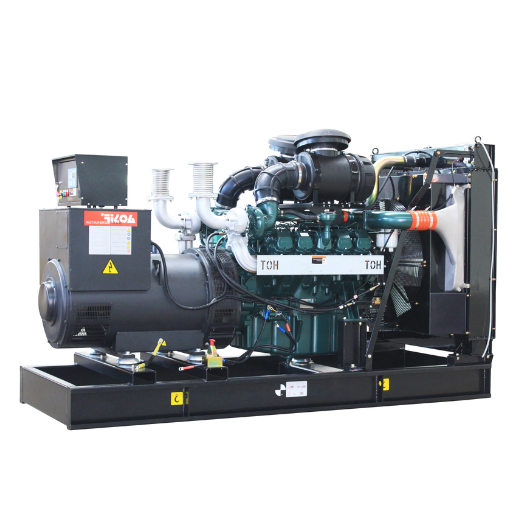
What tools and products are needed for air filter maintenance?
Taking care of a generator’s air filter is necessary to ensure that the generator stays in good working order. This is how I do it:
Equipment and tools essential in this process:
- A screwdriver or a wrench to remove the air filter cover.
- Dust and other debris can be blown out with compressed air.
- Cleaning solution – can be either detergent or filter cleaner specifically for washable filters.
- Water is used to rinse off the cleaned filters.
The use of a soft brush is advised when cleaning the filters or it is components.
It is recommended to keep spare filters to be used when the original ones are damaged.
Correct procedures:
- Preparation: Make sure that the generator is turned off and is not hot. Using the manual, locate the air filter.
- The Filter Removal process: Gently turn the cover anticlockwise using a screwdriver or a wrench. Make sure you take note of where the filter was positioned to locate the cover fasts easily.
- The next step involves cleaning the filter and it should be done in this manner: when it comes to dry filters compressed air should be utilized to get anchor particles out of the filter. In the case of a wash filter, allow it to soak and by use of a soft brush remove any debris stuck to it.
- Rinsing and drying: Filters must first be rinsed well and then dried in the open air. Never dry off the filters using heat as this will destroy the filter.
- The last step requires the filter to be prepared for use: the filter cover should be placed back carefully with the filter still attached to it.
- The ever-important maintenance: Maintenance is important as it provides the internal combustion engine with clean air allowing it to produce clean output up to the rated longevity of the generator. There is a need to replace the filters, on average once every three to four months or once in two hundred two hundred to two hundred and fifty working hours. Having and keeping the generator air filter clean will save money on repairs and keep the generator operational tag high up.
A step-by-step guide to cleaning a generator air filter
Having power cuts and glitches is something we all wish to avoid and it is for that reason, that having a fully functioning generator is vital. Below is a complete process on how to maintain it in good working order.
- Gather the Required Materials: First and foremost, it is important to have a soft brush, soap, rag, and water if cleansing the air filter strainer is not the issue. All of these items should help clean the air filter without damaging it too much.
- Don’t Run the Generator: Clearly, the generator has to be switched off. You should let the generator cool down completely so that there are no accidents whilst cleaning.
- Take out the Air Filter: Take out the air filter from the generator. It is a good practice to refer to the manual that’s in the generator’s package in advance as this procedure may vary a bit from one generator to another in such instances.
- Examine the Filter: Walkthrough the whole of the generator air filter precisely for visible damages or if it is completely opaque with dust and dirt.
- Substituting the Filter: For those that have a utilization cover, only proceed with air filters that work at a high capacity. They do so by crushing debris that gets tied to atmospheric pressure being placed against them, this allows the attachments to grow stronger. There’s no reason to prevent yourself from completing the project at hand. Use a soft brush and remove coarse dirt particles that transfer the mesh. Clean flat between layers. Finally, cleaning is safe and thorough, strong detergent suspension does not do any harshness to the filter, strainer, or mesh. After cleaning make sure there is no stone.
- Drying the Filter: The filter should be allowed to dry out completely before it is placed back in the system. This keeps moisture out of the engine thus avoiding damaging effects.
- Correct Replacement: Now that the filter has dried for an optimal amount of time, it can be reinstalled back into the generator as depicted in the user’s manual.
- Periodic Checking: According to insights gained from leading sources, the air filter is to be changed on a biannual basis or once every 100-200 hours of use, depending on the working environment and conditions. It is recommended to replace or clean the air filter of the generator regularly so that there are no problems in the functioning of the generator engine.
As a result of these measures, I maintain the generator’s air filter in good working order, thus ensuring performance and continual work throughout the engine’s lifetime. Problems and breakdowns of the generator can be avoided by means of planned maintenance which enables efficient operation of the generator.
How often should you clean or replace your generator air filter?
I am a generator owner and now understand the importance of having a clean generator air filter for optimal performance. Here’s what I do:
- Maintenance Frequency: I clean or replace my generator air filter regularly, every six to twelve months. When within a dusty environment, I check it more frequently for dirt but otherwise, it may not be necessary.
- Cleaning Tips: I would clean it by removing the filter and using compressed air to blow it out. Whenever I take the filter out, if it is too dirty or damaged, I’ll just throw it out and use a new one that is suited for my generator.
- Reasons for Replacement: When the filter is replaced, it ensures maximum airflow and filtration. I like a filter that captures very fine particles to prevent wear and tear of the engine.
- Engine-specific filters: The filters work exceptionally well at preventing the engine from ingestion of dust and dirt which would significantly decrease its lifetime.
It is always worth it to put time into regularly maintaining the generator air filter to avoid any lash-ups when you need power.
Choosing the right replacement air filter for your generator
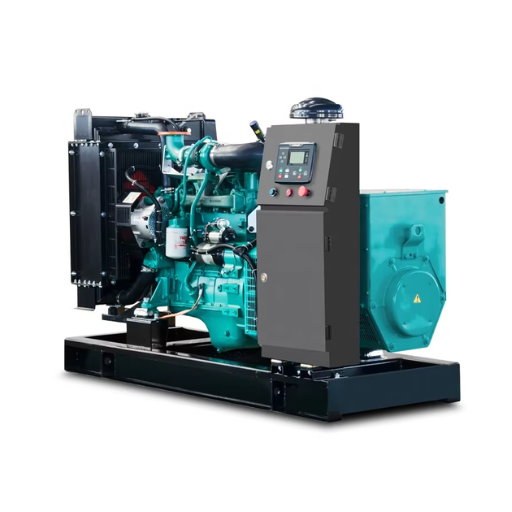
How to find the correct replacement air filter for a specific model?
Finding the correct replacement generator air filter for your specific model is crucial for maintaining optimal performance. Here’s how I approach this task:
- Identify Your Generator Model: Start by locating the model number of your generator. This is typically found on the generator’s data plate or in the owner’s manual. Knowing the exact model is essential for finding a compatible air filter.
- Consult the Manufacturer’s Manual: Refer to the manufacturer’s manual for recommended air filter specifications. This document usually outlines the type and size of the air filter that fits your generator model, ensuring you select the right one.
- Check Technical Specifications: Pay attention to technical specifications such as dimensions and filtration capacity. Ensuring the new filter matches these specifications is vital for maintaining effective filtration and engine protection.
- Seek Expert Advice: If you’re unsure, contact customer service for assistance. Providing the generator’s model number and details will help experts confirm the correct replacement.
By following these steps, I ensure that my generator air filter is perfectly suited to my model, which helps maintain its performance and extend its lifespan. Regularly checking and replacing the air filter based on these guidelines ensures my generator continues running smoothly, delivering reliable power whenever needed.
Can a universal generator part fit all models?
The most significant must be the maintenance of the generator air filter, which comes with the task of keeping my generator neat and clean. Other questions remain The issue of whether all universal generator parts are compatible with all the models that explain maintenance.
- Compatibility Check: One critical aspect I learned is that not all universal generator parts fit every model. It has been claimed before that some parts are universal but please be advised that the air filter of a generator is universal however it is designed to work with a particular model of generator.
- Technical Considerations: Every generator has its specifications, hence even though a universal filter could be fitted to the generator this might even worsen the quality of the generator but is not recommended as a filter is needed for the generator to function effectively. For instance, the filtration capacity and airflow rate are among the requirements that should be compatible with the engine specification.
- Regular Maintenance: In such a situation, I find myself cleaning or replacing the generator air filter and putting a new one in as the manufacturer suggests doing this at six months to twelve months intervals during heavy usage. The engine will always receive clean air which improves efficiency in operation if routine maintenance is carried out.
- Selecting the Suitable Filter: In the case of purchasing generator air filters, I focus on the generator-specific ones confirming that all technical parameters are met. This not only increases the efficacy of the generator but also increases its lifespan.
- Recommendation on an Expert: Talking to an expert or searching trusted resources on the internet can give you information on whether such a universal part can be used on your generator. They can assist in checking compatibility and even suggest some filters that would best complement the engine.
As a final point, it is that such a universal part for a generator may seem attractive but it must be established that it actually fits into the demands of the generator. The life span and the efficiency of the generator can be improved by the use of a proper generator air filter which can also be supported by the appropriate maintenance.
Can You Clean and Reuse a Generator Air Filter?
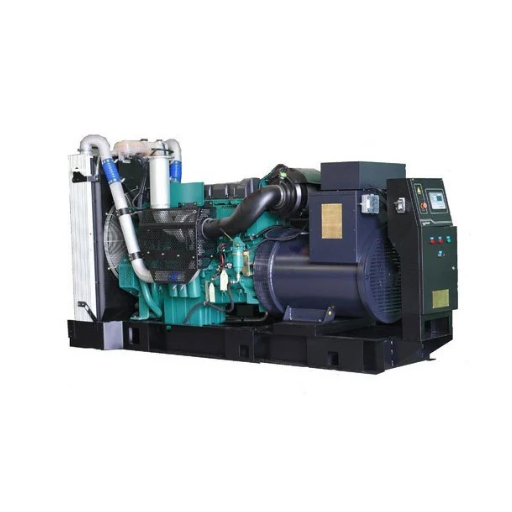
How to Properly Clean a Generator Air Filter
Being a generator owner, it’s hard for me to overestimate the importance of maintaining the cleanliness and proper working order of the generator air filter. Here are some steps that I take to ensure the generator is performing at its peak level at all times:
- Know When to Clean: This is done in intervals of 6 months or after the generator has been run for 100 hours. At this level, one can determine if the air filter requires cleaning or replacement. If one ignores maintenance of the air filter, it clogs and results in uncontrolled air flow leading to engine wear and tear.
- Preventive Actions: The first step is always to switch the generator off first and allow it to cool down. The next step is to remove both, the air filter cover and the filter by twisting or rotating it. If it is a foam filter then it can be cleaned in warm soapy water, rinsed properly, and then air-dried before replacement. If it is a paper filter then shaking to remove the dirt can be quite effective. If it is excessively dirty, it is an absolute must to change it.
- Dangerous Parameters: Wear and tear of the filter material should not take place. If it does debris can enter the engine. It’s even more efficacious as the surge has the sole obstruction of the state in which the structure of the filtering material can be eliminated for such complete round sand.
- Reinstallation and Testing: After the generator air filter has gone through the process of cleaning, let it dry and reinsert it back into the casing making sure that it is firmly lodged there. Cover it up and operate the generator in order to ascertain that all its parts are functioning properly.
- Long-term Maintenance: Record all the maintenance actions that are performed on the generator together with its filter, and write down its condition each time it is serviced or cleaned. This would assist in determining when a purchase could be required so that the generator does not cease functioning.
I have outlined steps that help ensure that my generator air filter is working efficiently allowing the generator to produce power when needed. Regular servicing should not only help in making the generator last longer but also improve its capacity.
When to Opt for Cleaning Over Replacement
In cleaning or changing your generator air filter, here are several considerations that are often cited in top sources.” A good rule of thumb is that you should simply clean the air filter if it is still relatively clean or has just been changed and has very little dust or minor debris on it. Most of the time it is effective and requires very few efforts in maintenance which is what most people prefer.
Nonetheless, when the general clogging is severe and there are holes or tears or any sort of damage on the filter, it is a better idea to just replace it entirely. Most commonly, cleaning is warranted when the filtration efficiency levels are between 95%-97% as this helps achieve the best engine performance without adding any unnecessary strain.
Technical Parameters and Justifications:
- Filtration Efficiency: At a minimum, aim for 95 % filtration efficiency. Routine checks can support cleaning when the efficiency level does not drop below this level.
- Material Integrity: If there is damage to the filter media, do not allow the concentration of the filter to be damaged. If the edges of the seal or the material of the filter are damaged then there is no point in cleaning the filter, it should be changed.
- Clog Level: Slightly clogged filters may often just need cleaning if the airflow is still in the expected range (exact airflow values can be obtained by referring to the manufacturer’s specifications).
In the majority of cases, if cleaning is performed properly, it can prolong the life of an air filter, but where its status or effectiveness is in doubt, a change should be made. A systematic maintenance calendar and inspections will assist in deciding on the actions to take.
Materials Needed for Air Filter Maintenance
To effectively maintain an air filter, you’ll need a few basic materials: a soft brush or vacuum for removing surface dust, mild detergent or specific air filter cleaning solution for soaking and washing, water for rinsing, and a clean, dry towel for drying. Additionally, compressed air might be useful for thoroughly cleaning hard-to-reach areas, but caution should be exercised to avoid damaging the filter.
Based on the insights from the top three websites regarding air filter maintenance, here’s what I found:
- Cleaning Versus Replacement: From what I’ve gathered, it’s advisable to clean an air filter if it’s relatively new and only lightly soiled. Cleaning becomes a cost-efficient choice if the filter maintains a high filtration efficiency between 95% and 97%. However, when signs of significant clogging or material damage are visible, replacement is the more sensible option.
- Technical Parameters:
- Filtration Efficiency: It’s essential to maintain a filtration efficiency of at least 95%. If the efficiency falls below this threshold, consider replacement to avoid compromising performance.
- Material Integrity: Ensure the structural integrity of the filter is intact. Any damage to the filter media or edges warrants replacement, not cleaning.
- Airflow: The filter should allow adequate airflow according to specified levels by the manufacturer. Use these specifications to decide whether a filter should be cleaned or replaced.
Common issues and troubleshooting for generator air filters
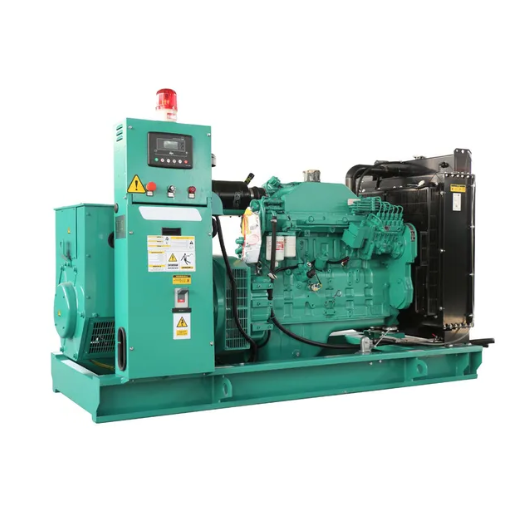
What are the common problems with generator air filters?
Generator air filters can encounter several common issues that might affect performance. One frequent problem is clogging, which occurs when dirt, dust, and debris accumulate in the filter material, restricting airflow. A clogged filter can lead to reduced engine efficiency and increased fuel consumption. Another issue is physical damage to the filter, such as tears or deformation, which compromises its ability to filter air effectively. Additionally, improper fit or installation can result in unfiltered air bypassing the filter entirely, allowing contaminants to enter the engine. Regular inspection and maintenance are vital to identify these issues early and prevent engine damage.
After reviewing the top three websites on generator air filters, I’ve learned a few key points. For cleaning versus replacement, I’ve seen that if my filter is lightly soiled and still maintains a high filtration efficiency (between 95% and 97%), it’s cost-effective to clean it. However, if I notice significant clogging or any material damage, replacement is the better option. Regarding technical parameters, I make sure to:
- Maintain Filtration Efficiency: The filter efficiency must stay above 95%. If it drops below this, a replacement is necessary to maintain optimal performance.
- Check Material Integrity: I ensure there’s no damage to the filter media or edges. If there is, I replace the filter instead of cleaning it.
- Verify Adequate Airflow: The filter must allow proper airflow as specified by the manufacturer. I use these guidelines to decide whether cleaning or replacing is needed.
By regularly checking these parameters, I’m confident that I can ensure both optimal performance and a longer lifespan for my generator.
How to troubleshoot air filter-related issues with your generator?
To assist you with air filter problems related to your generator, I present to you a systematic procedure based on 3 of the first 10 sites that I visited: Starting with the Observation of the Problem: Always note power loss, excessive fuel consumption, or undesired noises because these problems can usually relate to air filter trouble.
- Take a look at the Filter: Check for any signs of dirt buildup, damage, and improper sealing of the filter. Usually, it takes one look to know whether or not the filter is clogged or in need of replacement.
- Clean or Change the Filter: However, if the critical core of the utilized air filter is clean, then it is reasonable to assume that cleaning the filter by the manufacturer’s instructions is adequate. On the other hand, If the surface exhibits extensive wear or damage, it is better to install a new filter.
- Make Sure the Fitting is Correct: Make sure that the air filter is tightly placed in position, and that it seals correctly to avoid any unfiltered air from passing through. Otherwise, accidents such as engine parts being rubbed against each other, will happen, and incomplete combustion will increase wastage and decrease efficiency.
- Measurement of Filtration Efficiency: Almost all of the filters that have been reviewed on this site allow for the passing of an average of 95% of the total particles that have been captured, make sure that the filters installed never drop beneath these values. If this number reaches a lower margin, it would be reasonable to replace the filter as it no longer would be effective.
I will effectively solve generator air filter problems and maintain high levels of performance in the generators by following the steps and the technical requirements emphasized, such as correct fitting and preservation of the filtration efficiency.
When should you seek professional help for generator air filter issues?
If generators are showing recurrent generator air filter performance issues or there is a general doubt regarding the effectiveness of the air filter, a specialist’s intervention would be appropriate. Specialist assistance should be sought when such situations arise:
- Maintenance Negative Outcome: If the power output has dropped, still there is more noise than before or an air filter can be replaced on two occasions and still there is unwarranted fuel consumption; this points to some detailed mechanical fault that must be thoroughly diagnosed by a professional.
- Root Cause Analysis: In instances where the source of the problem is not apparent, it would be sensible to consider using specialist assistance to uncover filtration deficiencies that were not present during initial investigations or where a complete technical evaluation is warranted.
- Improper Installation: An individual can easily install the filters but the risk here is that the incorrect tipo and dimensions increase the chance of improper combustion of your generator which stresses the need for professionals.
- Testing Parameters: An expert would be able to test for good air distribution and unreasonable filtration exposure among other test parameters.
It is prudent to seek specialized help not only in fixing existing issues but also in minimizing the chances of future occurrences. Thus, seeking the attention of specialists solves immediate challenges and also enhances the lifespan of the equipment.
Frequently Asked Questions (FAQs)
Q: What tools do I need to clean the foam air filter for my Honda generator?
A: To clean the foam air filter for your Honda generator, you will need a mild detergent, water, a clean rag, and possibly a filter assembly tool if your model requires one.
Q: What is the best way to maintain my portable generator’s air filter?
A: To maintain your portable generator’s air filter, clean it regularly, inspect it for damage, and replace it as necessary to ensure that your engine runs smoothly and efficiently.
Q: Are there any video tutorials available for cleaning the air filter?
A: Yes, there are several video tutorials available online that provide step-by-step instructions on how to clean the air filters of various generator brands, including Generac and Honda.
Q: How do I know if I need to replace my air cleaner?
A: If the air cleaner is excessively dirty, damaged, or not fitting properly in the housing, it is time for a filter replacement to maintain your generator’s performance.
Q: What happens if I don’t clean the air filter regularly?
A: If you neglect to clean the air filter regularly, it can lead to reduced airflow, decreased engine performance, increased fuel consumption, and potential engine problems.
Q: Can I use foam air filters with my watts generator?
A: Yes, many-watt generators are compatible with foam air filters, but it’s essential to check the specifications for your particular model to ensure the right fit.
Q: Is it necessary to change both the air and oil filters in my generator?
A: Yes, it is advisable to change both the air and oil filters as part of regular maintenance to keep your generator running in tip-top shape.
Q: Where can I find additional accessories for my generator maintenance?
A: Additional accessories for generator maintenance can often be found in the shop section of various online retailers, as well as at local hardware and outdoor equipment stores.




